
IN AN ARTICLE ON THE 2012 crash of a Pilatus PC-12, I faulted the National Transportation Safety Board for mixing up indicated and true airspeeds. Actually, it was I who misread the report. I am indebted to reader Timothy Burtch, an accident investigator with the NTSB, for pointing out that the maximum speed of 338 kt that the aeroplane reached in a spiral dive before it broke apart was, in fact, an indicated airspeed, not a true one, and that the aeroplane did, therefore, exceed its manoeuvring speed by 175 kt as the report stated.
The Pilatus, with a family of six aboard, was climbing through FL250 in IMC. It was at 109 KIAS, in a 25-degree right bank, deviating to avoid an area of rain, when the autopilot disengaged for unknown reasons. Presumably a chime sounded and a warning light illuminated, but the pilot seemingly did nothing to take over control of the aeroplane. A baffling aspect of the accident was the pilot's apparent failure to act even when the aeroplane was vertically banked and plunging downward at an horrific rate.
Within 10 seconds of the autopilot disconnect, the angle of bank had increased to 50 degrees and the plane had begun to descend. After 30 seconds, the bank angle was 100 degrees and the plane had lost 2,600 feet. In the next 13 seconds, it lost another 5,900 feet while the positive load factor increased to 4.6 G.
At 36 seconds the indicated airspeed, having peaked at 338 kt - 430 true -- dropped to zero, suggesting that the breakup - the aeroplane lost its horizontal stabiliser and portions of both wings had taken place ant somewhere around 15,000 feet.
This story is from the {{IssueName}} edition of {{MagazineName}}.
Start your 7-day Magzter GOLD free trial to access thousands of curated premium stories, and 9,000+ magazines and newspapers.
Already a subscriber ? Sign In
This story is from the {{IssueName}} edition of {{MagazineName}}.
Start your 7-day Magzter GOLD free trial to access thousands of curated premium stories, and 9,000+ magazines and newspapers.
Already a subscriber? Sign In
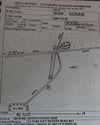
Iris - her early years: IRIS FLIES ACROSS SUDAN
Laura McDermid continues her stories about Iris McCallum's early years in East Africa and the Sudan. In part 1 of this story she recounts how she had to fly a bunch of Belgian Missionaries to Aweil, a city in northwestern South Sudan, from Wilson in Nairobi in her old mate 'ARN', the Piper Aztec 5Y-ARN.

UGLY IS PRETTY: LEAR 25 VS PILATUS PC-6
When you go to a party where you don't know anybody, you should always go for the 'Ugly' girl, because she will be happy that you chose to spend time with her.

CIRRUS G7 LAUNCHED IN AFRICA
What makes one aircraft better than another? Range, Speed, or carrying capacity, short field performance, operating costs, high wing, low wing, side stick, traditional control yoke?
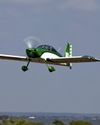
PRESIDENT'S TROPHY AIR RACE 2024
The annual Presidents Trophy Air Race (PTAR) is the highlight of the year for many competitive general aviation pilots.
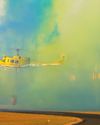
THE ABSA LOWVELD AIRSHOW 2024
This year marked the thirtieth edition of the Lowveld airshow – and it was widely acclaimed as the best ever.

PREVIEW: AFRICAN AEROSPACE AND DEFENCE EXPO(AAD)
Guy Leitch finds out from AAD Exhibition Director, Ms Nakedi Phasha, how the buildup to this year's biennial expo is going, and what visitors and exhibitors can expect.
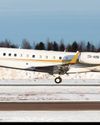
APRIL 2023
April has been a very quiet month on the local aviation marketplace with only nine new registration allocations and three deletions, according to the officially-supplied register review.
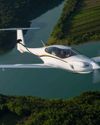
PIPISTREL PANTHERA FINALLY HERE
One of the world's most eagerly awaited piston single engine aircraft designs has finally arrived in South Africa. ZU-KTR is a long awaited Panthera, proudly owned by Bertus Kritzinger, a Free State trucker, and based at New Tempe in Bloemfontein, where the well-known Ferriera Aviation has assembled it.
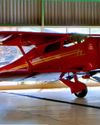
STAGGERWING - ALREADY OLD WHEN NEW
The Staggerwing was the climax, and the end, of an era.

The Aim of Bombing
In modern warfare it's not the soldiers who die - it's the civilians. One of the best examples of this is carpet bombing.